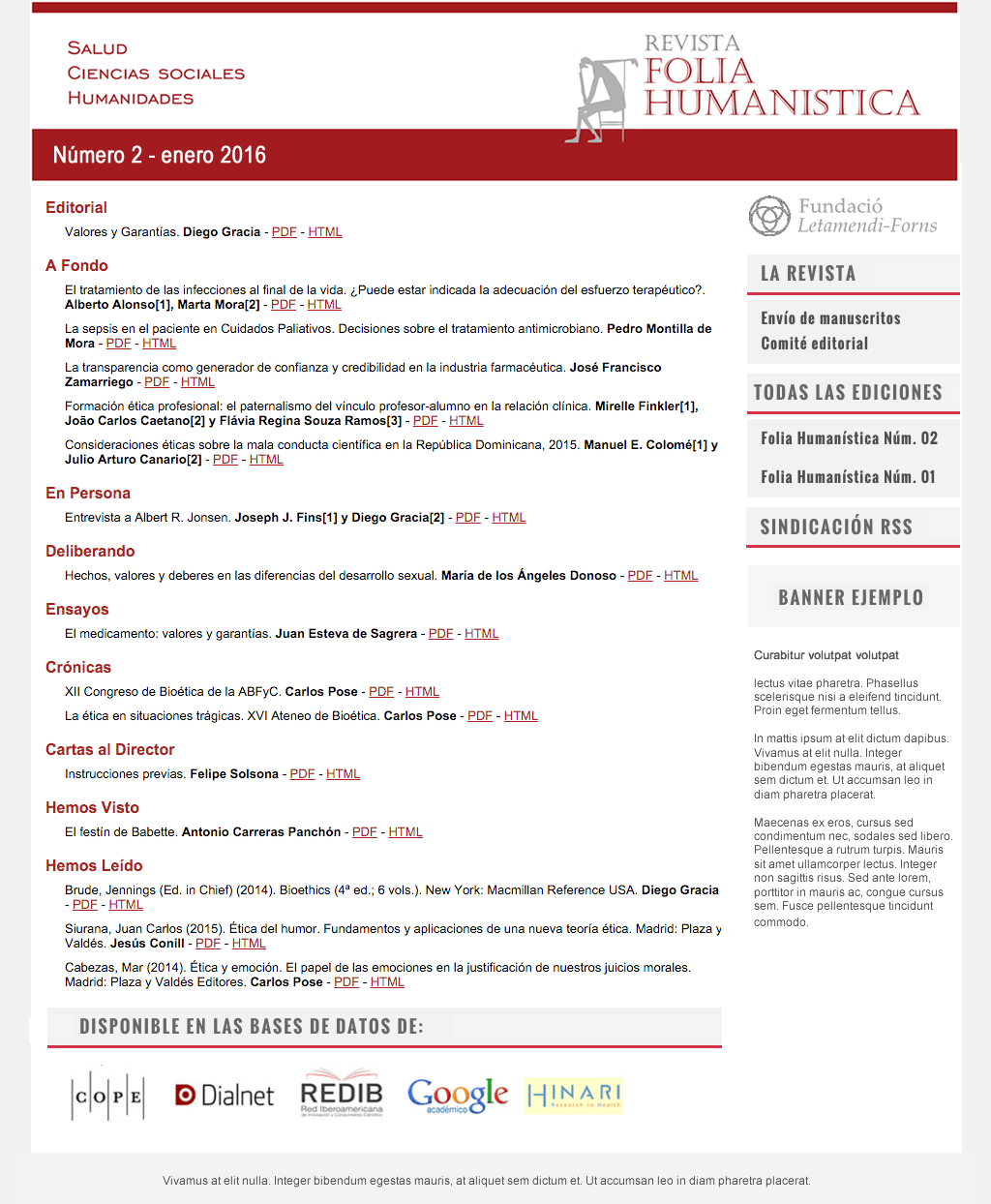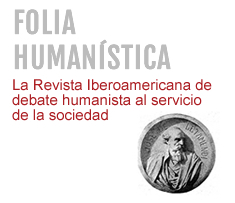Epistemología aplicada a la medicina
El nihilismo médico
DOI:
https://doi.org/10.30860/0077Keywords:
biomedical research, philosophy of medicine, skepticism, evidence-based medicine, clinical practiceAbstract
Throughout history, on several occasions medical practice did much harm to humanity. This gave rise to many forms of mistrust of medicine, known as "medical nihilism." My aim in this paper is to examine some versions of this thesis. I argue that while some medical nihilisms are reasonable, a more robust nihilistic position is problematic. In order to accomplish this, I begin by distinguishing a wide variety of possible nihilistic positions. Next, I isolate those that, for various reasons, are both contentious and interesting from a philosophical point of view. At a later point, I present and assess several common criticisms that have been leveled against an aspect of contemporary medicine, which involves both methodological considerations of recent biomedical research and epistemological implications of its institutionalized practice. I conclude by drawing some lessons from this evaluation.
References
Angell, M. (2004). The Truth About the Drug Companies: How they Deceive us and What to Do about It, New York: Random House, ISBN: 0375508465.
Broadbent, A. (2019). Philosophy of Medicine, New York: Oxford University Press, ISBN: 9780190612139.
Dodds, S. (2008). “Inclusion and exclusion in women’s access to health and medicine”. International Journal of Feminist Approaches to Bioethics, 1(2), pp. 58-79. DOI: 10.1353/ijf.0.0036.
Dresser, R. (1992). “Wanted: single, white male for medical research”. The Hastings Center Report, 22(1), pp. 24-29. DOI: 10.2307/3562720.
Evidence-Based Medicine Working Group (1992). “Evidence-Based Medicine: a new approach to teaching the practice of medicine”. JAMA, 268(17), pp. 2420-2425. DOI: 10.1001/jama.1992.03490170092032.
Hitt, J. (9 de diciembre de 2001). “The year in ideas: A to Z; Evidence-Based Medicine”, The New York Times, p. 68.
Howick, J. (2011). The Philosophy of Evidence-Based Medicine, Oxford: Wiley-Blackwell, ISBN: 9781405196673.
Huang, H. y Coker, A. (2010). “Examining issues affecting african-american participation in research studies”. Journal of Black Studies, 40(4), pp. 619-636. DOI: 10.1177/0021934708317749.
Inhorn, M. y Whittle, L. (2001). “Feminism meets the ‘new’ epidemiologies: towards an appraisal of antifeminist biases in epidemiological research on women’s health”. Social Science & Medicine, 53, pp. 553-567. DOI: 10.1016/S0277-9536(00)00360-9.
Ioannidis, J. (2005). “Why most published research findings are false”. PLos Medicine, 2(8), pp. 696-701. DOI: 10.1371/journal.pmed.0020124.
La Caze, A. (2011). “The role of basic science in Evidence-Based Medicine”. Biology and Philosophy, 26(1), pp. 81-98. DOI: 10.1007/s10539-010-9231-5.
Le Fanu, J. (1999). The Rise and Fall of Modern Medicine, New York: Carroll and Graf, ISBN: 9780316648363.
Lexchin, J. (2012a). “Those who have the gold make the evidence: how the pharmaceutical industry biases the outcomes of clinical trials of medications”. Sci Eng Ethics, 18, pp. 247-261. DOI: 10.1007/s11948-011-9265-3
(2012b). “Sponsorship bias in clinical research”. Int J Risk Saf Med, 24(4), pp. 233-242. DOI: 10.3233/JRS-2012-0574
McIntyre, L. (2019). The Scientific Attitude: Defending Science from Denial, Fraud, and Pseudoscience, Cambridge: MIT Press, ISBN: 9780262039833.
Niiniluoto, I. (1993). “The aim and structure of applied research”. Erkenntnis, 38, pp. 1-21. DOI: 10.1007/BF01129020.
Porter, R. (1999). The Greatest Benefit of Mankind: A Medical History of Humanity, New York: Norton, ISBN: 0393046346.
Reiss, J. y Ankeny, R. (2016). “Philosophy of Medicine”. In Zalta, E. (ed.), The Stanford Encyclopedia of Philosophy, URL: <https://plato.stanford.edu/archives/sum2016/entries/medicine/>.
Reiss, J. y Kitcher, P. (2009). “Biomedical Research, Neglected Diseases, and Well-Ordered Science”. Theoria. An International Journal for Theory, History and Foundations of Science, 66, pp. 263-282. DOI: 10.1387/theoria.696
Russo, F. y Williamson, J. (2007). “Interpreting causality in the health sciences”. International Studies in the Philosophy of Science, 21(2), pp. 157-170. DOI: 10.1080/02698590701498084.
Rutkow, I. (2010). Seeking the Cure: A History of Medicine in America, New York: Scriber, ISBN: 9781416538288.
Simon, H. (1969). The Sciences of the Artificial, Cambridge: MIT Press, ISBN: 9780262193740.
Solomon, M. (2015). Making Medical Knowledge, Oxford: Oxford University Press, ISBN: 9780198732617.
Steel, D. (2008). Across the Boundaries: Extrapolation in Biology and Social Science, Oxford: Oxford University Press, ISBN: 9780195331448.
Stegenga, J. (2018a). Care and Cure: An Introduction to Philosophy of Medicine, Chicago: The University of Chicago Press, ISBN-13: 9780226595030.
(2018b). Medical Nihilism, New York: Oxford University Press, ISBN-13: 9780198747048.
Thomas, L. (1983). The Youngest Science: Notes of a Medicine Watcher, New York: Viking, ISBN-13: 9780553340662.
Wootton, D. (2006). Bad Medicine: Doctors Doing Harm Since Hippocrates, New York, Oxford University Press, ISBN-13: 9780192803559.
Worrall, J. (2007a). “Evidence in medicine and Evidence-Based Medicine”. Philosophy Compass, 2(6), pp. 981-1022. DOI: 10.1111/j.1747-9991.2007.00106.x.
(2007b). “Why there’s no cause to randomize”. British Journal for Philosophy of Science, 58(3), pp. 451-488. DOI: 10.1093/bjps/axm024.
(2002). “What evidence in Evidence-Based Medicine”. Philosophy of Science, 69(S3), pp. S316-330. DOI: 10.1086/341855.
Downloads
Published
How to Cite
Issue
Section
License
La Revista Folia Humanística se adhiere a Creative Common en la modalidad: Reconocimiento – NoComercial – CompartirIgual (by-nc-sa): No se permite un uso comercial de la obra original ni de las posibles obras derivadas, la distribución de las cuales se debe hacer con una licencia igual a la que regula la obra original.








